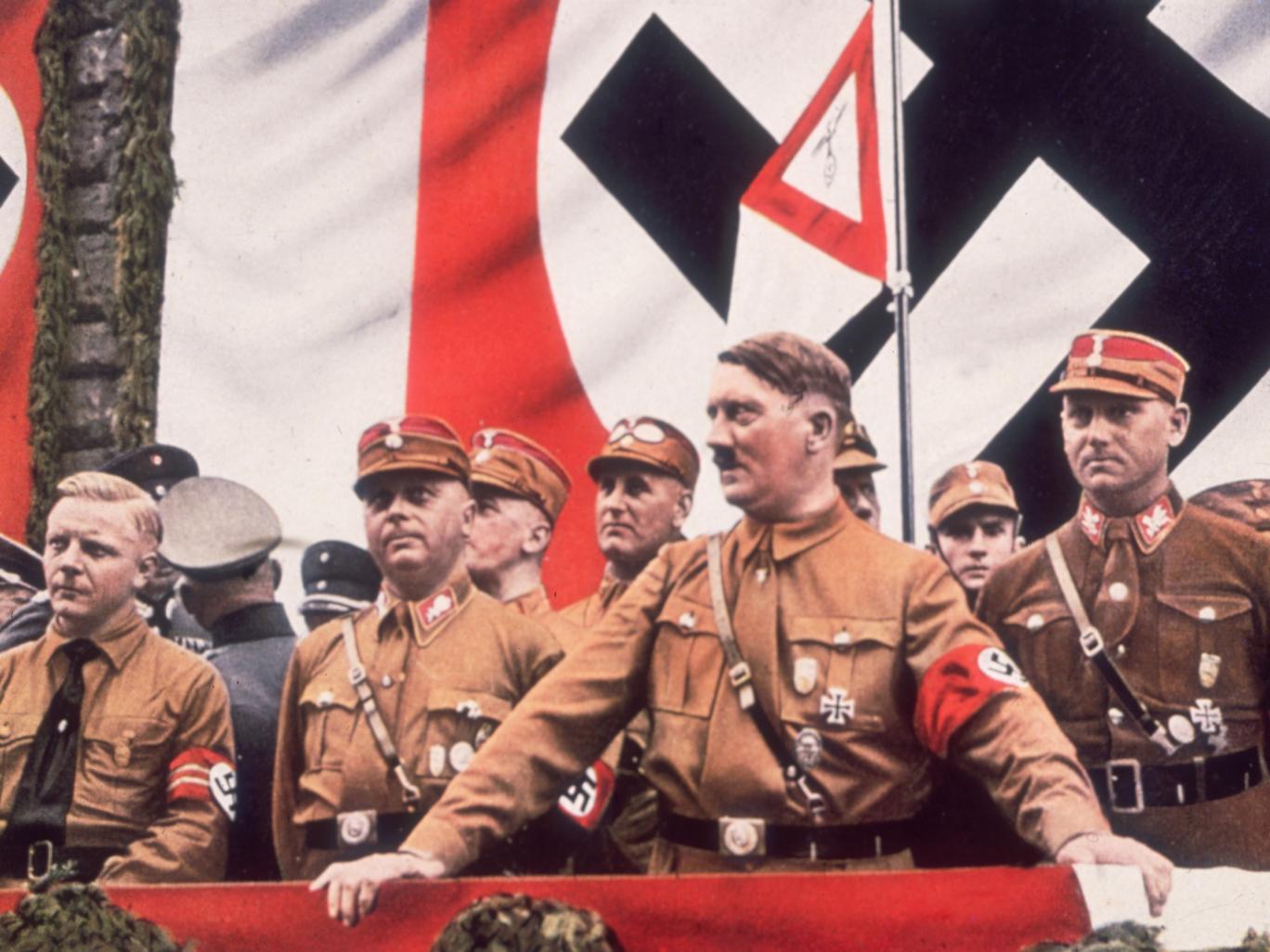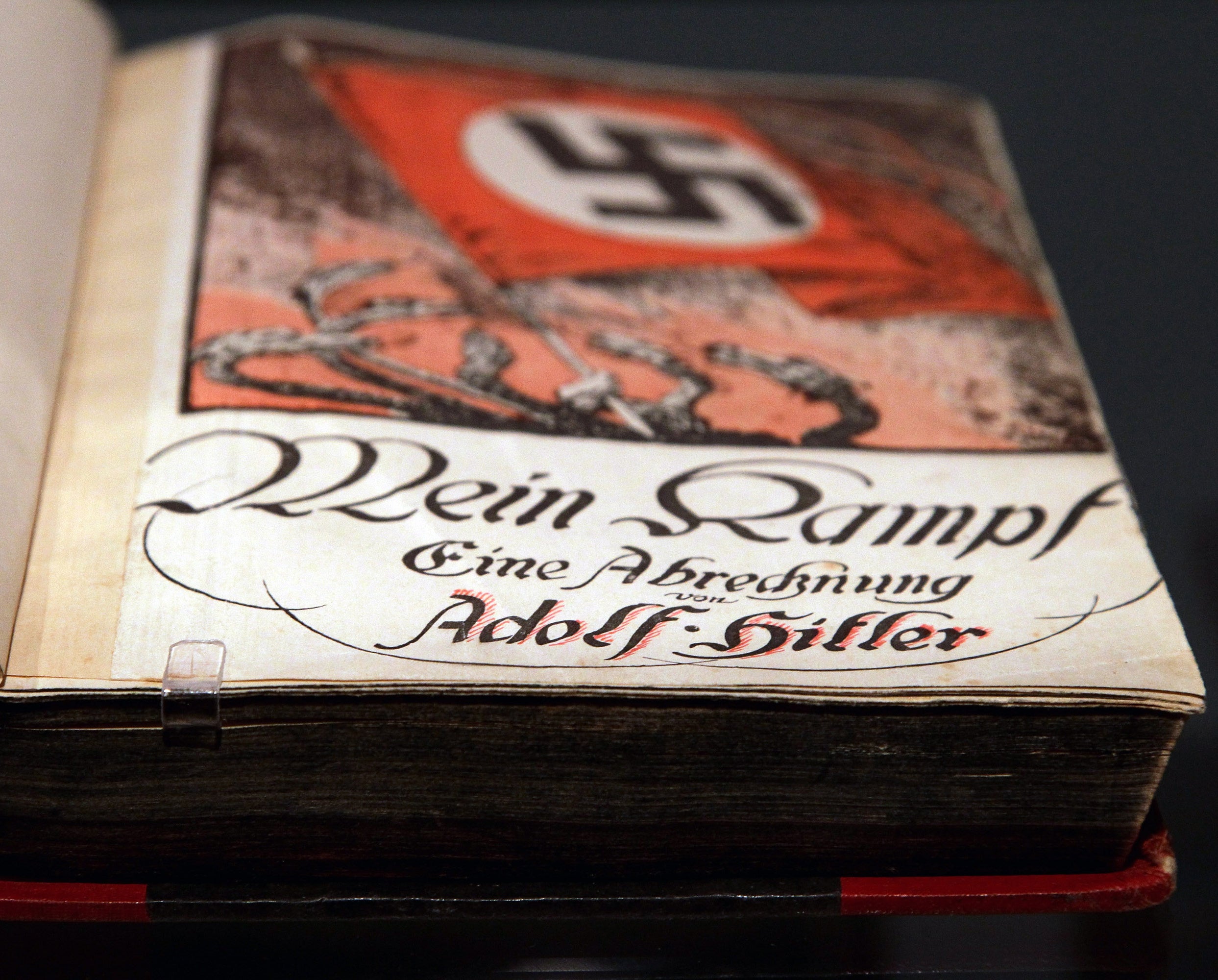Hitler's Mein Kampf to go on sale in Germany for first time in 70 years with new 1,949 page annotated edition
The academics who produced the new text said if anyone could reproduce the dictator's lies it was important to have a scholarly version to refute them

Your support helps us to tell the story
From reproductive rights to climate change to Big Tech, The Independent is on the ground when the story is developing. Whether it's investigating the financials of Elon Musk's pro-Trump PAC or producing our latest documentary, 'The A Word', which shines a light on the American women fighting for reproductive rights, we know how important it is to parse out the facts from the messaging.
At such a critical moment in US history, we need reporters on the ground. Your donation allows us to keep sending journalists to speak to both sides of the story.
The Independent is trusted by Americans across the entire political spectrum. And unlike many other quality news outlets, we choose not to lock Americans out of our reporting and analysis with paywalls. We believe quality journalism should be available to everyone, paid for by those who can afford it.
Your support makes all the difference.A new, annotated version of Adolf Hitler’s Mein Kampf will go on sale in Germany for the first time in 70 years from Saturday after the copyright expires.
The copyright was previously owned by the state of Bavaria - which has banned the book over fears of exploitation by far-right and neo-Nazi groups - but it will expire on New Year's Day and anyone will be able to reproduce it.
In a bid to counter any far right groups using the book to promote their agenda, four academics from the Institute for Contemporary History in Munich has spent three years writing a 1,948 page annotated edition.
It will include 3,500 academic notes to challenge his anti-semitic rantings.
The book, which translates as "My Struggle", was first written in 1924 while Hitler was in prison for a failed coup against the new German Republic.
It is widely regarded as the future dictator's political manifesto in which he details his hatred for Jewish and Slavic people and his plan to expand Germany to the east.
The book formed the blueprint for the genocidal regime which followed after the Nazis came to power in 1933.
It only sold a few copies when it was first released but by by the outbreak of the Second World War in 1939 it had sold 5.2m copies - and was given to newlywed couples when they married.
After the war, the American occupying forces gave the copyright to the state of Bavaria who banned the book from being printed - but existing copies remained in libraries and second hand bookshops.
Dr Christian Hartmann, who lead the team of academics, said if anyone could reproduce Hitler’s words it was better to have a scholarly version which refuted his lies.
He told the Times: “It was important to us to reach many people so we have tried to create a very reader friendly edition.

“We firmly connect Hitler’s text with our comments, so that both are always on the same double page. I could describe it in martial terms as a battle of annihilation — we are encircling Hitler with our annotations.
“Our principle was that there should be no page with Hitler’s text without critical annotations. Hitler is being interrupted, he is being criticised, he is being refuted if necessary.”
But Jewish leaders remain unconvinced.
Levi Salomon, spokesman for the Berlin-based Jewish Forum for Democracy and Against Anti-Semitism said in February: “I am absolutely against the publication of ‘Mein Kampf,’ even with annotations. Can you annotate the Devil? Can you annotate a person like Hitler?
“This book is outside of human logic.”